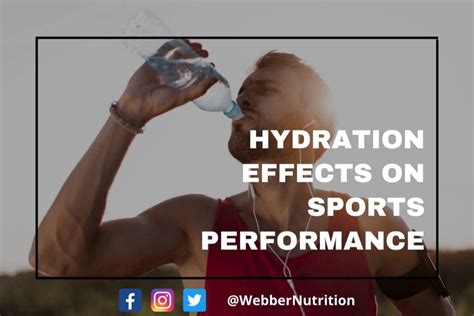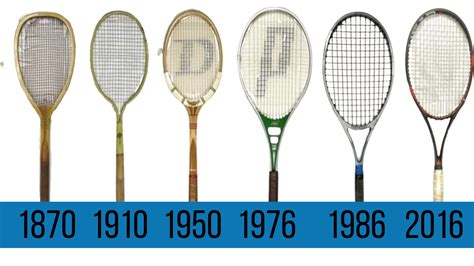Discover the critical role hydration plays in tennis performance, recognize dehydration signs, and learn to develop an effective hydration strategy for long-term benefits.In the fast-paced world of tennis, staying at the top of your game requires more than just skill and strategy; it hinges on proper hydration. As players engage in grueling matches, the importance of maintaining optimal fluid levels cannot be overstated. Hydration plays a pivotal role in enhancing athletic performance, impacting everything from endurance and strength to focus and recovery. In this article, we will delve into why hydration is crucial for tennis players, explore the signs of dehydration and its effects on performance, and offer strategies to develop a hydration plan tailored for success on the court. Discover the long-term benefits that a well-hydrated athlete can experience and learn how making hydration a priority might just be the key to unlocking your best game yet.
Understanding The Importance Of Hydration In Tennis
Staying adequately hydrated is crucial for tennis players at all levels, as it significantly impacts their physical performance and overall well-being. The body loses fluids through sweat, especially during intense physical activities like tennis, where matches can last for several hours under various weather conditions. Understanding the importance of hydration can help players maintain optimal performance and reduce the risk of fatigue and injury.
Proper hydration helps regulate body temperature, enhances joint lubrication, and facilitates the efficient functioning of muscles. Dehydration, even at mild levels, can lead to decreased concentration and impaired muscle coordination. This is particularly critical in a sport like tennis, which demands precision, speed, and agility. Consequently, when players are well-hydrated, they are better equipped to respond quickly to the dynamic demands of a match.
Moreover, hydration is not just important during matches or practice sessions; it plays a vital role in the recovery process post-exercise. Adequate fluid intake helps in replenishing lost fluids, aids in muscle recovery, and promotes overall body function. Players who recognize the importance of hydration are more likely to develop a consistent routine that keeps their body optimized for performance both on and off the court.
Understanding the importance of hydration in tennis is essential for athletes aiming for peak performance. By recognizing the effects of hydration on their body and gameplay, tennis players can make informed choices that positively influence their health and athletic capabilities.
How Proper Hydration Boosts Athletic Performance
Proper hydration plays a crucial role in enhancing athletic performance, especially in a physically demanding sport like tennis. The body’s ability to perform at its peak is significantly influenced by its hydration levels. When athletes maintain optimal hydration, they experience improved energy levels, endurance, and overall physical function.
Firstly, adequate fluid intake helps to regulate body temperature during intense matches. When players are hydrated, their bodies efficiently dissipate heat, reducing the risk of overheating and fatigue. In contrast, dehydration can lead to decreased performance due to increased muscle fatigue and reduced coordination. This demonstrates the importance of staying adequately hydrated, particularly in the high-energy environment of tennis.
Moreover, hydration has a direct impact on muscle function. Muscle tissues require proper hydration to operate effectively. Dehydration may result in muscle cramps and longer recovery times, which can be detrimental in the critical moments of a match. Research indicates that a loss of even 2% of body weight due to dehydration can lead to a significant decline in performance. By maintaining hydration, players can sustain their strength and agility throughout prolonged matches.
Hydration aids in the cognitive functions necessary for sports performance. Tennis players must make rapid decisions and maintain focus during matches. Dehydration can impair cognitive and motor skills, leading to mistakes and reduced reaction times. Therefore, it is essential for players to prioritize their hydration strategy not only to enhance physical capabilities but also to ensure mental sharpness on the court, underscoring the importance of hydration in tennis performance.
Signs Of Dehydration And Its Impact On Play
Recognizing the signs of dehydration is crucial for tennis players, as even mild fluid loss can significantly hinder performance. Here are some common signs to watch for:
- Thirst: One of the earliest indicators, feeling thirsty often means you’re already mildly dehydrated.
- Dark Yellow Urine: A strong indicator of dehydration is the color of your urine. Darker shades typically signify a need for more fluids.
- Fatigue: Experiencing abnormal tiredness during a match may suggest your body is lacking adequate hydration.
- Dizziness or Lightheadedness: These symptoms can occur when blood volume decreases due to fluid loss, affecting balance and coordination.
- Muscle Cramps: Dehydration can lead to muscle cramps, which can hinder your movement and disrupt your performance on the court.
- Headache: Lack of proper hydration can result in headaches, further challenging concentration and focus during play.
When a player experiences any of these signs, it can lead to decreased stamina, slower reaction times, and impaired cognitive function. This decreases both the quality of play and the ability to execute strategies effectively. Moreover, dehydration can potentially lead to more severe physical complications, such as heat exhaustion or heat stroke, which could pose serious health risks.
Recognizing these signs of dehydration is an integral part of understanding the importance of hydration in tennis. Staying attuned to your body’s needs can help maintain peak performance on the court.
Developing A Hydration Strategy For Optimal Performance
To fully harness The Importance of hydration in tennis, it is essential for players to develop a well-structured hydration strategy tailored to their unique needs. Here are several key components to consider when creating an effective hydration plan:
By prioritizing The Importance of hydration and implementing an effective hydration strategy, tennis players can enhance their performance, endurance, and overall health, ensuring they remain competitive on the court.
The Long-Term Benefits Of Staying Hydrated In Tennis
Staying hydrated is not just essential for immediate performance on the court; it also offers significant importance for long-term athletic development and health in tennis players. Here are some key benefits of maintaining proper hydration over time:
| Benefit | Description |
|---|---|
| Improved Recovery | Proper hydration helps in faster recovery post-exercise, reducing muscle soreness and fatigue. |
| Enhanced Endurance | Consistent hydration contributes to better cardiovascular function, increasing stamina during lengthy matches. |
| Injury Prevention | Well-hydrated muscles are less prone to injuries such as cramps and strains, ensuring consistent performance. |
| Stronger Immune System | Staying hydrated supports overall health, improving the body’s ability to fend off illnesses that could affect training. |
| Better Mental Function | Hydration plays a vital role in cognitive function, enhancing concentration and decision-making skills during matches. |
Additionally, developing a habit of proper hydration can lead to an overall healthier lifestyle, influencing a player’s diet and fitness regimen. Regular awareness of the importance of hydration can create a mindset that values physical well-being and peak performance, ultimately benefiting their entire tennis career.
Frequently Asked Questions
Why is hydration important for tennis players?
Hydration is crucial for tennis players because it supports optimal physical performance, helps regulate body temperature, and prevents fatigue and cramps during intense matches.
How does dehydration affect tennis performance?
Dehydration can lead to decreased endurance, reduced coordination, increased fatigue, and impaired concentration, all of which can negatively impact a player’s performance on the court.
What are the signs of dehydration that tennis players should look for?
Signs of dehydration include excessive thirst, dry mouth, fatigue, dizziness, decreased urine output, and dark-colored urine. Players should be aware of these symptoms to manage their hydration levels effectively.
When should tennis players hydrate before and during a match?
Tennis players should begin hydrating at least 24 hours before a match and continue to drink water or sports drinks during changeovers and breaks to maintain optimal hydration levels.
What types of fluids are best for hydration in tennis?
Water is essential for hydration, but during long matches, sports drinks containing electrolytes can be beneficial as they help replenish lost minerals and provide energy.
How much water should tennis players drink daily?
It is generally recommended that tennis players drink at least 2-3 liters of water per day, but individual needs may vary based on factors such as body size, climate, and activity level.
Can food contribute to hydration for tennis players?
Yes, foods with high water content, such as fruits and vegetables, can contribute to overall hydration and are an important part of a balanced diet for tennis players.









